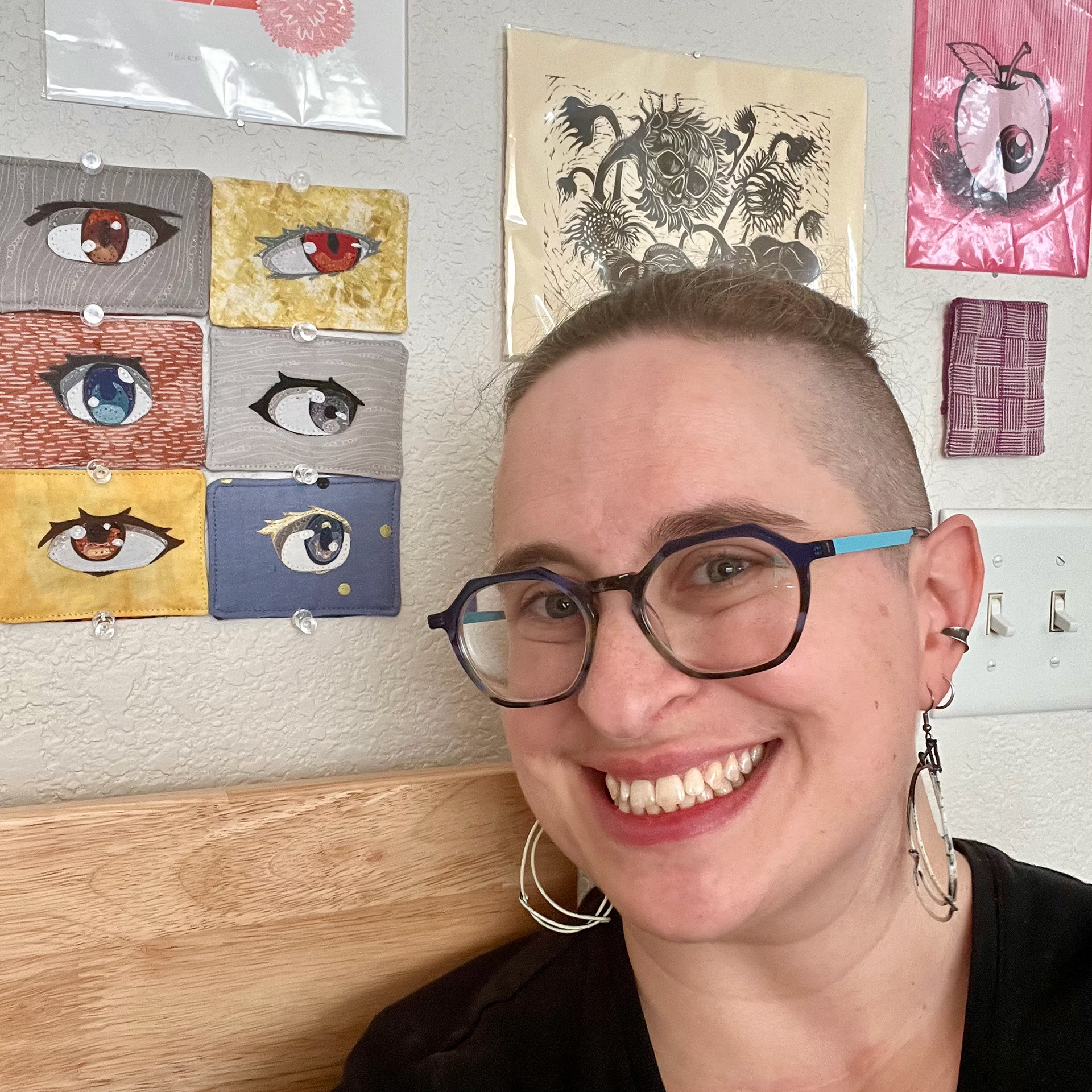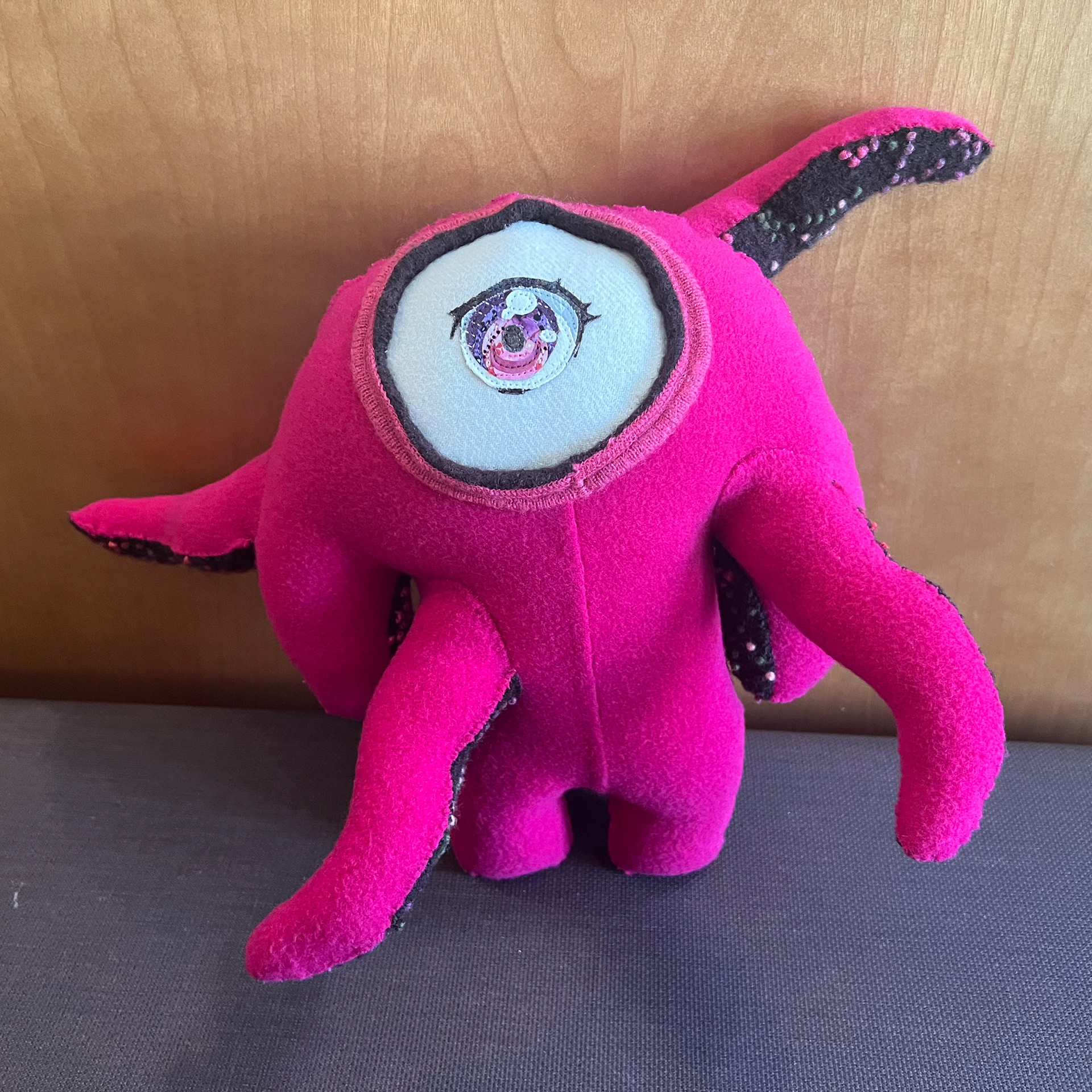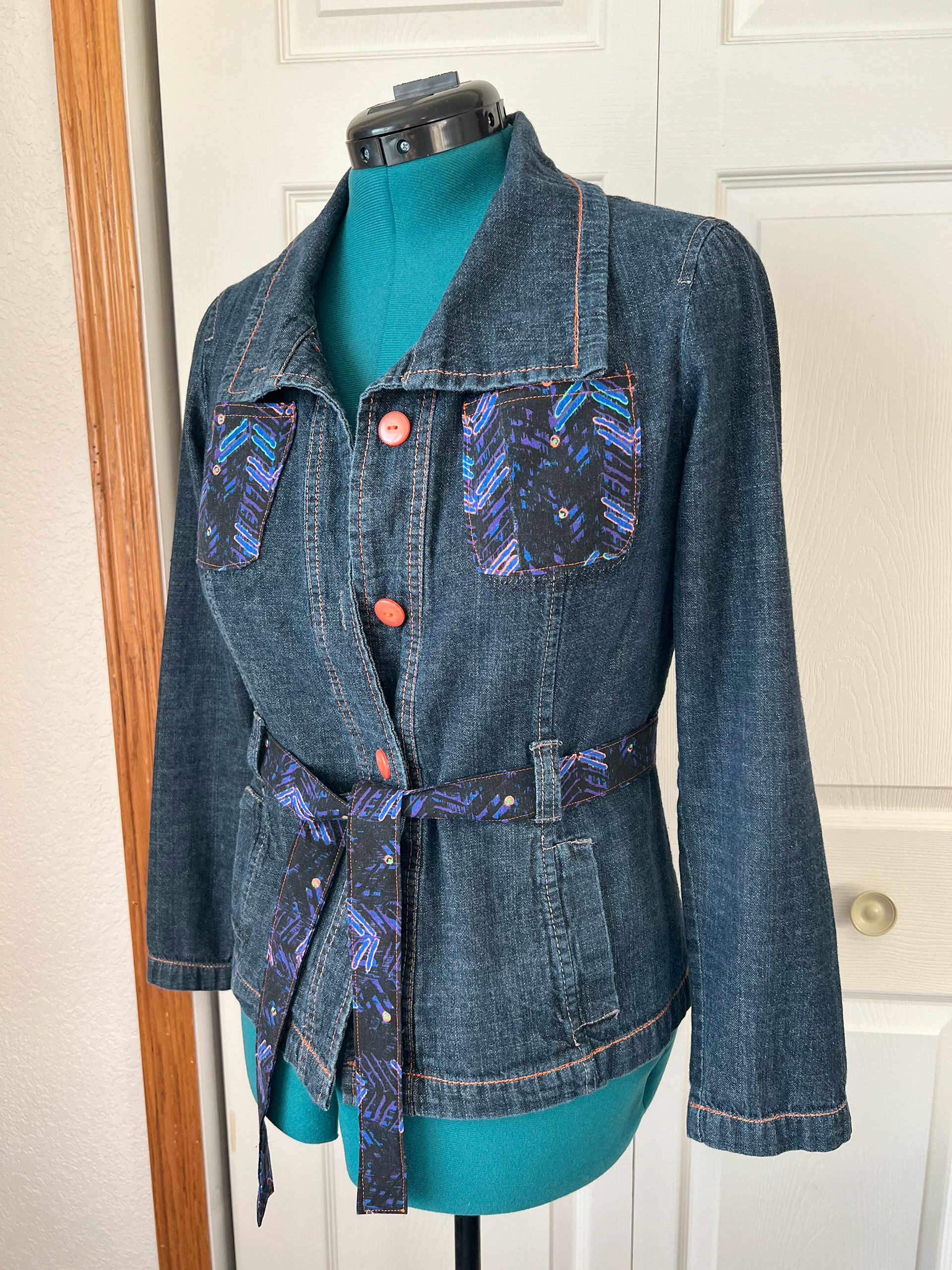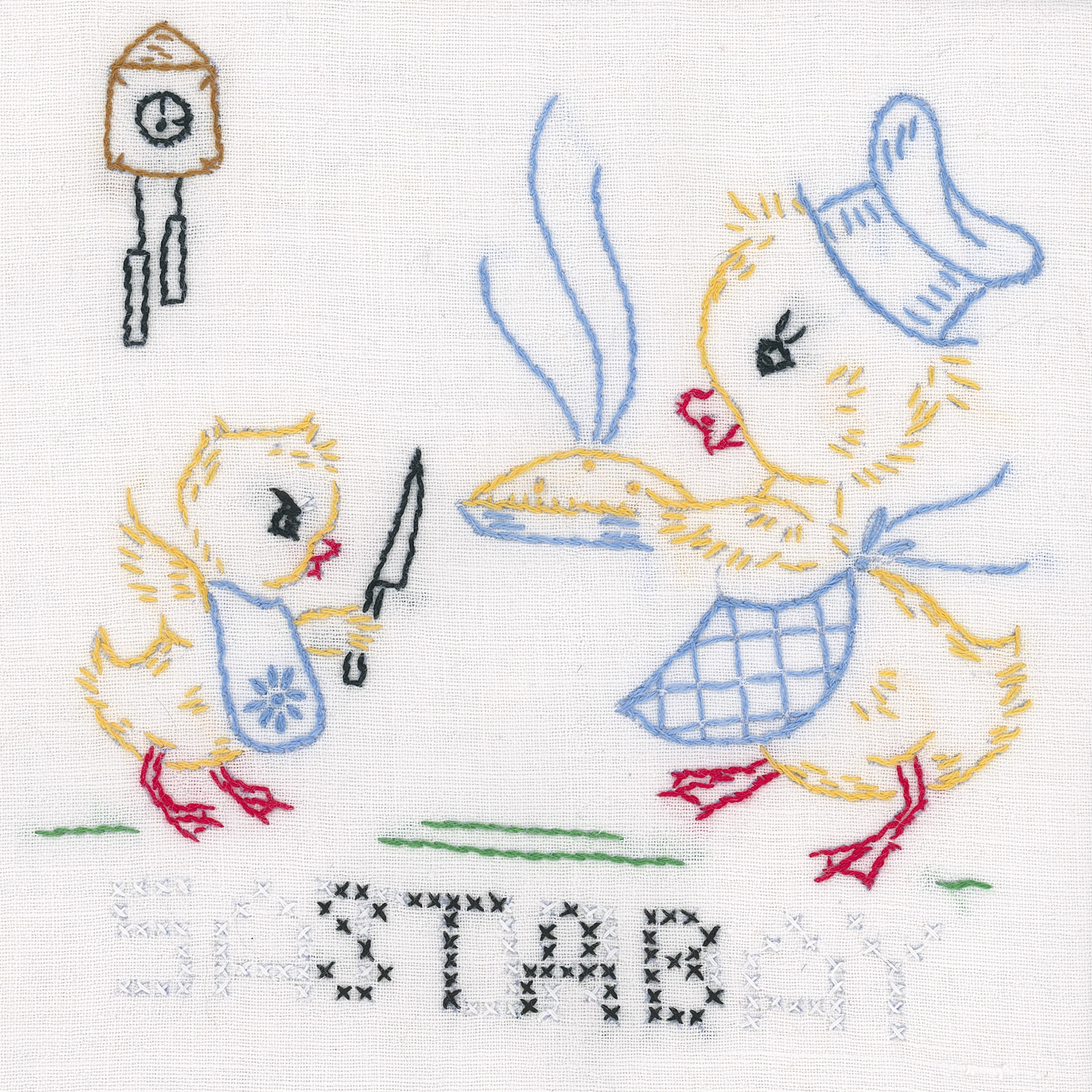

Homunculus #95 aka The Octopus

upcycled denim jacket

altered tea towel
Whitney Dirks (she/her) is a disabled, queer textile artist living in small-town Minnesota.
My art is driven by the potential I see in old objects: the bright yellow collar that embodies the sun's arc or the tines of a fork around which a tiny tapestry can be woven. I love rooting through other people's trash at thrift stores, discovering and stockpiling treasures for later use: embroidered table runners, books of upholstery samples, woolen coats in a surprising range of colors, patterns, and textures. I'm drawn to the discarded, the outdated, the broken, and the unloved, and the process of acquiring and curating supplies plays an active role in my artistic production.
My textile work largely falls into three genres: sculptural, wearable, and opinionated.
For my 3-dimensional pieces, I deconstruct woolen coats into their component fabrics and subsequently recombine them into polychromatic sculptures with embroidered and appliquéd elements. I call these weirdly cute creatures "homunculi," a Latin term for small, humanoid entities. They're both made of and wearing clothing that imbues them with distinct personalities, and they peer at the world through a range of facial features. They've gestated and evolved over the past half decade, developing into an entire species of wooly minions – mostly cyclopic and generally bipedal – that embody just enough of the human to be unsettling and just enough of whimsy to be adorable.
My clothing generally starts with an existing garment that I remake to be original and one-of-a-kind. This involves various approaches: salvaging the embroidery from a midcentury pillowcase to appliqué on a skirt, replacing a dozen buttons on a denim jacket, removing the pockets from a pair of cargo shorts to attach onto a belt. I mend holes and cover stains with needlework, adding a grouping of rosettes to a blouse or layering colorful patches on a pair of jeans. I embrace the ethical nature of this upcycled approach, which provides both an environmentally conscious alternative to consigning unwanted clothing to landfills and a socially conscious alternative to sweatshop labor.
The works that I have come to call My Opinions largely consist of messages stitched onto vintage linens found in thrift stores. Some are absurd, like a printed tea towel of New Zealand’s sheep breeds that I not-so-helpfully labeled, “This is a sheep.” Others are political, such as the phrase “love is love” filling the center of a 20th-century floral doily. These textiles may shock or entertain by turn, but they have in common that they make viewers pause and truly look at linens that have lived in a closet for decades and that had little perceived value before my own stitches altered them. My embroidery connects me to the women of my parents’ and grandparents’ generations who expended so much time and energy on beautifying their homes. And while they might not have shared my opinions, I hope that they would love the new use to which their needlework has been put.